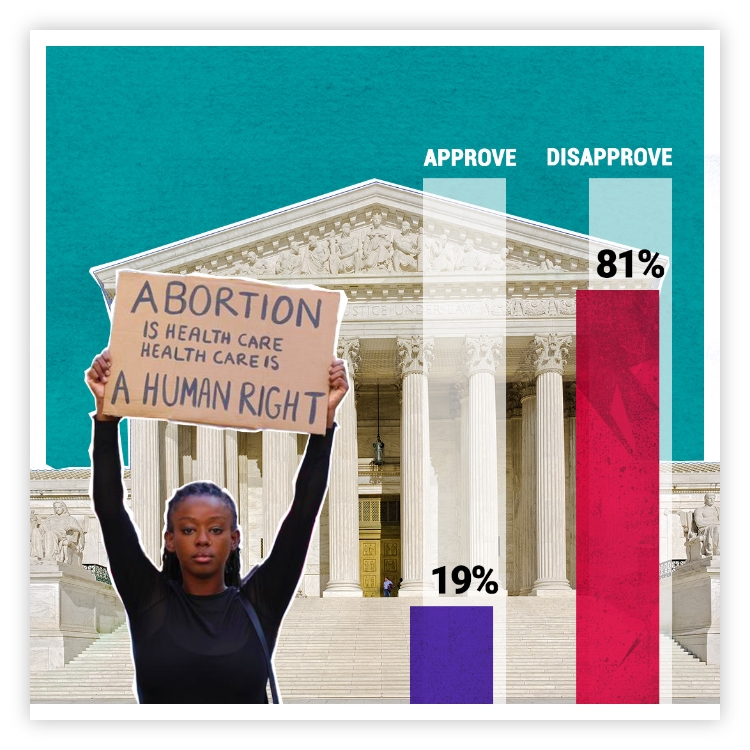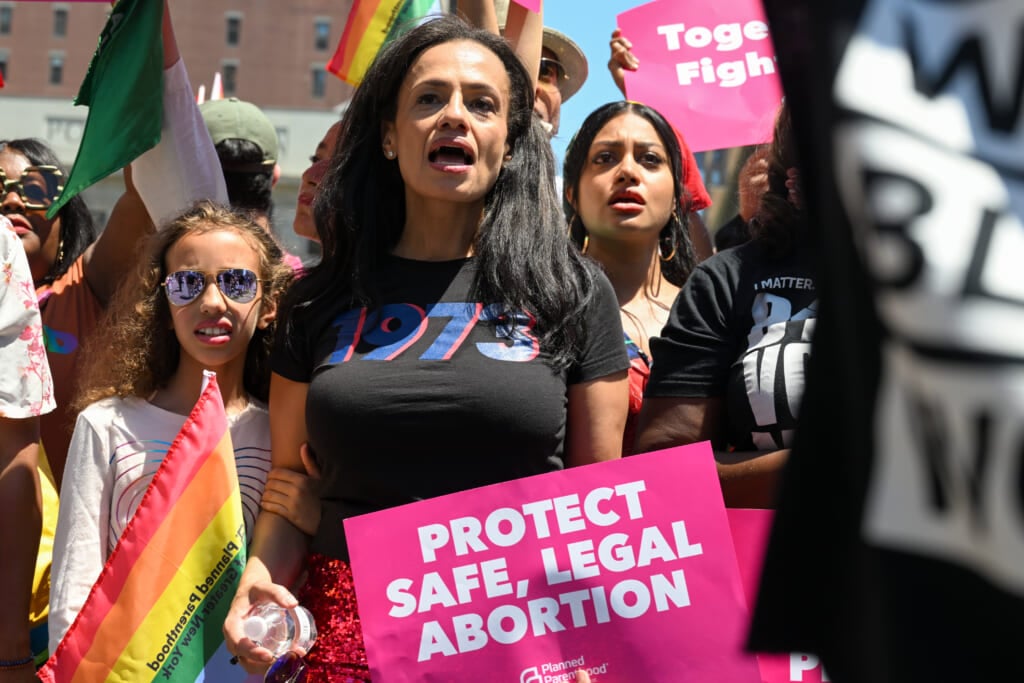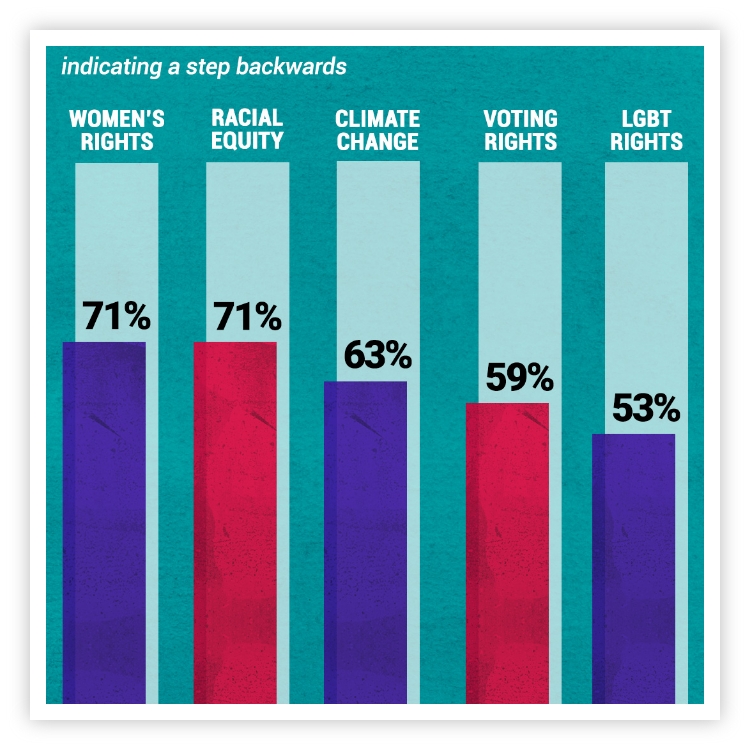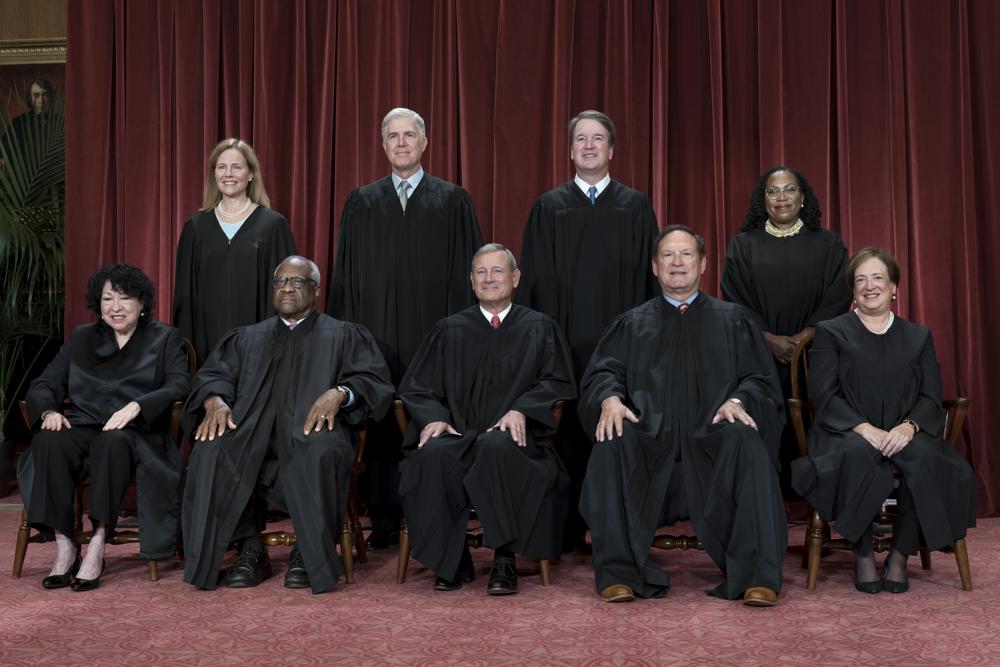Black voters say recent Supreme Court decisions are a step backward, hurt Black people: theGrio/KFF survey
TheGrio/KFF survey shows that most Black voters say the Court’s recent decisions have been a step backward on racial equity, women’s rights, voting rights, and climate.
Just weeks into the 2022-2023 session of the United States Supreme Court, a new survey conducted by theGrio and KFF shows a majority of Black voters say the Court’s recent decisions have been a step backward on racial equity, women’s rights, voting rights, and climate, and about half (51%) say these decisions will ultimately hurt Black people.
The Survey of Black Voters, a partnership between theGrio and KFF, a nonprofit organization focused on research and analysis of health and other national issues, interviewed 1,000 registered voters who identify as Black or African American from Aug. 24 to Sept. 5, 2022.
When it comes to women’s rights, particularly abortion, the survey found that 81% of Black voters said they disapprove of the Supreme Court overturning Roe v. Wade in its Dobbs v. Jackson decision earlier this summer, a share that is similar across gender, age, education, and income groups.
Do you (approve) or (disapprove) of the Supreme Court overturning Roe v. Wade?

Alexis McGill Johnson, president of Planned Parenthood Action Fund, told theGrio that “Black voters understand that losing the right to abortion is a matter of racial and economic justice.”
In fact, the survey also found that about eight in ten Black voters say the Supreme Court’s overturning of Roe v. Wade is specifically a bad thing for Black women. And about four in ten Black voters believe it will have a bigger impact on Black women than white women.
Johnson recognized states across the south and midwest moved quickly to ban abortion, as it “has been acutely felt by Black communities that have been at the margins of all of these issues for generations.”
Survey results reveal that Black voters who identify as Republicans or lean toward the party are more split on the high court decision to overturn Roe v. Wade, with about half approving and the other half disapproving. In contrast, a large majority (87%) of Black voters who are Democrats or lean Democratic disapprove of the decision.
“Black voters know that anti-abortion politicians are hellbent on stripping away their reproductive rights while failing to address the lack of access to health care or other resource inequities that are vital to raising safe and healthy families — and they will remember that in November,” added McGill Johnson.

But not all Black voters are against the Supreme Court’s ruling on abortion. Twenty-seven percent of Black voters identifying as evangelical Christians approved of Roe being overturned. That compares to 72% of white evangelicals who approve of the high court’s decision as measured by another KFF poll of all adults in September.
Melanie Campbell of the Black Women’s Roundtable told theGrio that voting in this year’s midterm elections on Nov. 8 has never been as important. Campbell responded to the survey results adding, “Black women are telling us they are using their voting power to fight for their rights, including the right to control their own bodies and they are also fighting for economic justice and safety in their communities.”
Leon W. Russell, chair of the National Board of Directors at NAACP, also touted the power of the Black vote in light of theGrio/KFF survey results, particularly regarding racial equity.
“Ignorance, hate and otherism can only be defeated by a community that is awake and aware of the power we have when we decide that we will work together. We have the power and we must use it. Vote,” said Russell.
TheGrio/KFF’s survey showed that 71% of Black voters say recent Supreme Court decisions are a step backward for racial equity, while 29% say just the opposite, that recent decisions are a step forward.
Do you think recent decisions by the Supreme Court have been a step forward or a step backward when it comes to each of the following?

Russell believes the remedy to issues seemingly going backward under a Supreme Court with a conservative majority is the power of the Black vote. “It is obvious that thinking people who are concerned about the state of the nation recognize that we must come together to use the power of the vote to save this nation and our democracy,” he added.
More findings from the recent theGrio/KFF survey mirror some of the Black leader sentiments in this story. Seven in ten Black voters say they believe that the Supreme Court justices decide cases based on politics and ideology rather than the law. Among Black voters, attitudes toward the Court and its recent decisions differ along educational lines, with those who have graduated college more likely than non-college graduates to believe justices make decisions based on politics and ideology and to see recent decisions as a step backward in various areas.

As decisions made by the Supreme Court, which leans conservative, 6-3, continue to be scrutinized, civil rights and social justice leaders fear more rollbacks of constitutional rights in the near future. Still, Fatima Goss Graves, president and CEO of the National Women’s Law Center, told theGrio that the Court’s minority liberal justices – which includes the newly installed Justice Ketanji Brown Jackson – will still play a crucial role in consequential cases.
“The thing that I think about is individuals on the Supreme Court, the decisions that they write either in the dissent or in the majority, they matter,” said Graves. “They may not matter in this very term, but they matter…sometimes the decisions that were the dissents in one year [later] become the majority.”
About the Survey
The Survey of Black Voters is the first partnership survey between theGrio and KFF, a nonprofit organization focused on research and analysis of health and other national issues. Teams from KFF and theGrio worked together to develop the questionnaire and analyze the data, and both organizations contributed financing for the survey. Each organization is solely responsible for its content.
The survey was conducted Aug. 24–Sept. 5 with a nationally representative, probability-based sample of 1,000 adults who identify as Black or African American and are registered to vote. The sample includes all voters who identify as Black or African American, including those who also identify as Hispanic or multi-racial. The sampling design includes Black registered voters reached online through the SSRS Opinion Panel and the Ipsos KnowledgePanel; to reach Black voters who do not use the internet, additional interviews were conducted by calling back respondents who previously participated in an SSRS Omnibus poll and identified as Black and said they did not use the internet. The combined telephone and panel samples were weighted to match the sample’s demographics to the national U.S. population of Black voters using data from the Census Bureau’s 2020 Current Population Survey (CPS) Voting and Registration supplement. Sampling, data collection, weighting and tabulation were managed by SSRS of Glen Mills, Pennsylvania, in close collaboration with KFF researchers.
The results have a margin of sampling error of plus or minus 4 percentage points for results based on the full sample of Black voters. The full methodology and question-wording are available here.
TheGrio is FREE on your TV via Apple TV, Amazon Fire, Roku and Android TV. Also, please download theGrio mobile apps today!
The post Black voters say recent Supreme Court decisions are a step backward, hurt Black people: theGrio/KFF survey appeared first on TheGrio.
from TheGrio https://ift.tt/gDU32Ee
No comments: